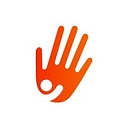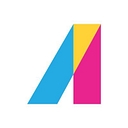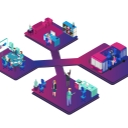Learning Management Systems (LMS) for SMBs, Startups, and Freelancers
45 Learning Management Systems (LMS) Software Available
Filters

No reviews yet
Entry Pricing: $29
Launch your branded online school with LearnWorlds—integrating LMS, site building, and eCommerce. Engage learners with interactive video quizzes and earn certifications effortlessly.

No reviews yet
Entry Pricing: $7.9
AI-generated, gamified quizzes and lessons for teachers, tutors, and parents.

No reviews yet
Entry Pricing: $540/mo
iSpring Learn is a powerful LMS that streamlines training delivery, tracks compliance, and provides insightful analytics, ensuring effective learning and engagement across teams.

No reviews yet
SAP Litmos streamlines training management with automated enrollment, robust reporting, and engaging content delivery, ensuring compliance and skill development across teams.

No reviews yet
Transform learning with Cornerstone Learning: a robust LMS for automated training delivery, progress tracking, compliance reporting, and engaging content—empowering teams to excel.

No reviews yet
LifterLMS streamlines course delivery, tracks learner progress, and ensures compliance, empowering organizations to enhance training outcomes with robust analytics and automation.

No reviews yet
Docebo Learn streamlines training with automated enrollments, rich content tools, and advanced analytics, ensuring compliance and engagement for effective learning experiences.

No reviews yet
LearnUpon is a powerful LMS that streamlines training delivery, tracks compliance, and provides insightful reports, ensuring effective learning experiences for all users.

No reviews yet
360Learning is a powerful LMS that automates training delivery, tracks compliance, and provides actionable insights, ensuring effective learning and seamless reporting for organizations.

No reviews yet
Teachable is a robust LMS that delivers, tracks, and reports training outcomes, ensuring compliance and engagement with automated reminders and rich learning tools.

No reviews yet
Entry Pricing: Free
Sakai LMS streamlines training delivery, tracks learner progress, ensures compliance, and offers robust analytics, empowering organizations to enhance education and engagement efficiently.

No reviews yet
Elevate training with WorkRamp's LMS: automate enrollments, track progress, ensure compliance, and engage learners with rich content—all while simplifying reporting and integrations.

No reviews yet
D2L Brightspace is a robust LMS that streamlines course delivery, tracks learner progress, ensures compliance, and enhances engagement with powerful analytics and mobile access.

No reviews yet
Entry Pricing: Free
Chamilo LMS streamlines training delivery and compliance tracking, offering rich course creation, automated enrollment, and robust reporting for effective learning management.

No reviews yet
Northpass is a powerful LMS that streamlines training delivery, tracking, and reporting, ensuring compliance and engagement while automating learner management for effective outcomes.

No reviews yet
Schoox is a powerful LMS that streamlines training management, tracks progress, ensures compliance, and enhances engagement with rich content and robust reporting, all in one platform.

No reviews yet
Learnster is a powerful LMS that streamlines training delivery, tracks learner progress, ensures compliance, and provides robust reporting—all while engaging users through rich content and automation.

No reviews yet
Valamis empowers organizations with a robust LMS to deliver, track, and report training efficiently, ensuring compliance and maximizing learner engagement through automation and analytics.

No reviews yet
BrainCert is a powerful LMS that streamlines course delivery, tracking, and reporting, ensuring compliance and engagement with automated reminders and rich content tools.

No reviews yet
LatitudeLearning is a robust LMS that streamlines training delivery, tracking, and compliance. Automate enrollments, generate insightful reports, and engage learners with rich content.

No reviews yet
Seismic Learning (Lessonly) streamlines training with automated enrollment, robust reporting, and engaging content, ensuring compliance and skill development across teams.

No reviews yet
Entry Pricing: Free
Forma LMS streamlines training management with automated enrollment, robust reporting, and engaging content delivery, ensuring compliance and optimizing learning outcomes across your organization.

No reviews yet
ProProfs LMS streamlines training with automated enrollment, robust analytics, and compliance tracking, ensuring engaging learning experiences and actionable insights for organizations.

No reviews yet
Absorb LMS streamlines training delivery and compliance tracking, offering rich course creation, automated enrollment, and insightful analytics for effective learning management.

No reviews yet
Skilljar is a powerful LMS that streamlines training delivery, tracks learner progress, ensures compliance, and provides robust analytics, all while engaging users through rich, interactive content.

No reviews yet
MATRIX LMS streamlines training delivery, tracking, and reporting, ensuring compliance and engagement with automated features, rich content tools, and insightful analytics for effective learning management.

No reviews yet
Entry Pricing: Free
Open edX streamlines learning with automated enrollment, robust analytics, and compliance tracking, ensuring engaging, effective training for teams and organizations.

No reviews yet
eFront is a powerful LMS that streamlines training delivery, tracking, and reporting, ensuring compliance while enhancing learner engagement with rich, adaptive content.

No reviews yet
Tovuti LMS streamlines training with automated enrollments, rich content creation, and robust reporting, ensuring compliance and engagement across all learning paths and devices.

No reviews yet
Bridge LMS streamlines training delivery and tracking, ensuring compliance with robust reporting, automated learner engagement, and versatile integrations for enhanced organizational learning.
What are Learning Management Systems (LMS)?
In an age where educational and training programs need to be delivered, managed, and tracked at scale, Learning Management Systems (LMS) have become essential tools. LMS software provides a centralized platform for schools, businesses, and online training providers to create courses, organize content, deliver lessons, and monitor learner progress. Whether it’s a school administrator or instructor overseeing digital classrooms, a corporate training manager rolling out employee development programs, or an online course creator reaching a global audience, an LMS app helps streamline education and training. These versatile LMS tools support both academic and corporate learning environments, making it easier to manage curricula, track performance, and ensure consistent learning experiences.
- Course Creation & Content Management: Allows instructors to create, upload, and organize course materials (videos, slides, documents) into structured lessons or modules.
- Learner Enrollment & Administration: Enables managing user registrations, organizing learners into classes or groups, and assigning roles (student, instructor, admin) within the system.
- Progress Tracking & Reporting: Tracks learner progress and performance, providing analytics and reports on course completions, scores, and engagement.
- Assessments & Quizzes: Provides tools to create online quizzes, tests, and assignments with automatic grading and allows issuing completion certificates upon course completion.
- Communication & Collaboration: Facilitates interaction through features such as discussion forums, announcements, messaging, and even virtual classroom tools to support communication between learners and instructors.
- Mobile Access & Remote Learning: Offers mobile apps or responsive design so learners and instructors can access content from any device, anywhere.
- Integrations & Extensions: Supports integration with other software (e.g., HR systems, content libraries) and allows extensions or customizations via APIs or plugins.
What is a Learning Management System (LMS)?
A Learning Management System (LMS) is a software application or platform designed to manage, deliver, and track educational or training programs. It serves as a centralized tool that allows instructors and administrators to create courses, distribute learning materials, enroll learners, and monitor progress—all in one place.
Who uses LMS software?
Schools and universities use LMS software to manage student learning, assign coursework, and support online or blended classes. Companies and organizations use LMS platforms for training employees, onboarding new hires, and continuing professional development. Independent instructors and online course creators also rely on LMS tools to create and deliver courses to learners.
What features should I look for in an LMS?
Key features to look for include tools for course creation and content management, user enrollment management, progress tracking with reporting, and built-in assessment capabilities (quizzes, assignments, etc.). It's also important to have communication features (like discussion forums and messaging), options to issue certificates for completed courses, and support for mobile access. Additionally, consider whether the LMS integrates with other tools (such as HR systems or content libraries) you use.
Can LMS platforms track learner progress and performance?
Yes. LMS platforms are built to track learner progress and performance. Instructors and administrators can see which lessons a learner has completed, their scores on quizzes or assignments, and how far they've progressed through a course. Most systems offer dashboards or reports that make it easy to review both individual and group performance data.
Are LMS tools suitable for both schools and corporate training?
Yes. Modern LMS tools are versatile enough to be used in both educational institutions and corporate training settings. Many platforms include features tailored to academic use (such as class enrollment, assignments, and grading) as well as business needs (like employee onboarding, compliance tracking, and skill development). This means the same LMS software can support a K-12 or university environment and also handle company training programs effectively.
Do LMS apps support mobile and remote learning?
Yes. Most modern LMS apps provide full support for mobile and remote learning. They typically offer dedicated mobile applications or a responsive web interface so learners can access courses and materials on smartphones or tablets. In many cases, instructors can also manage courses remotely, allowing education to happen anytime, anywhere.